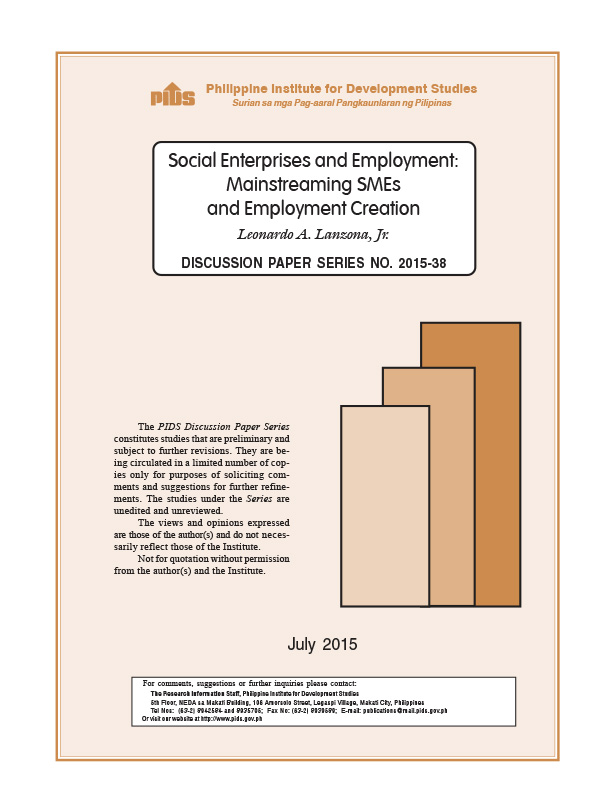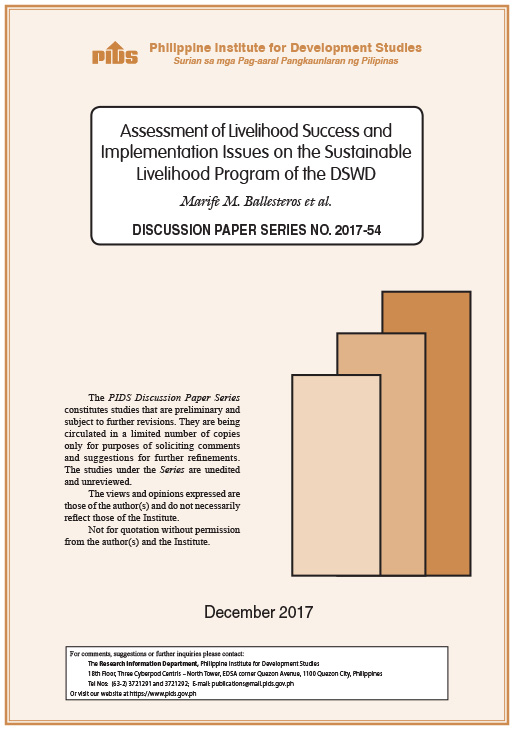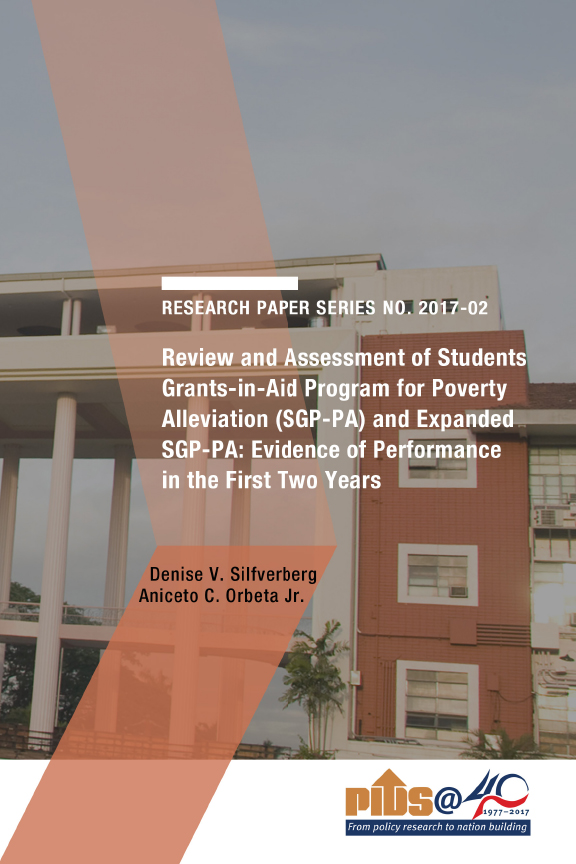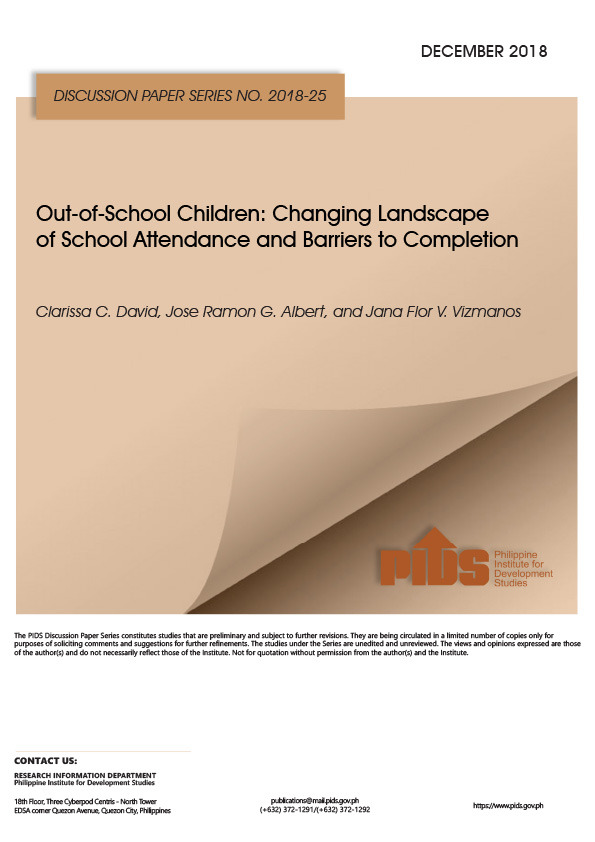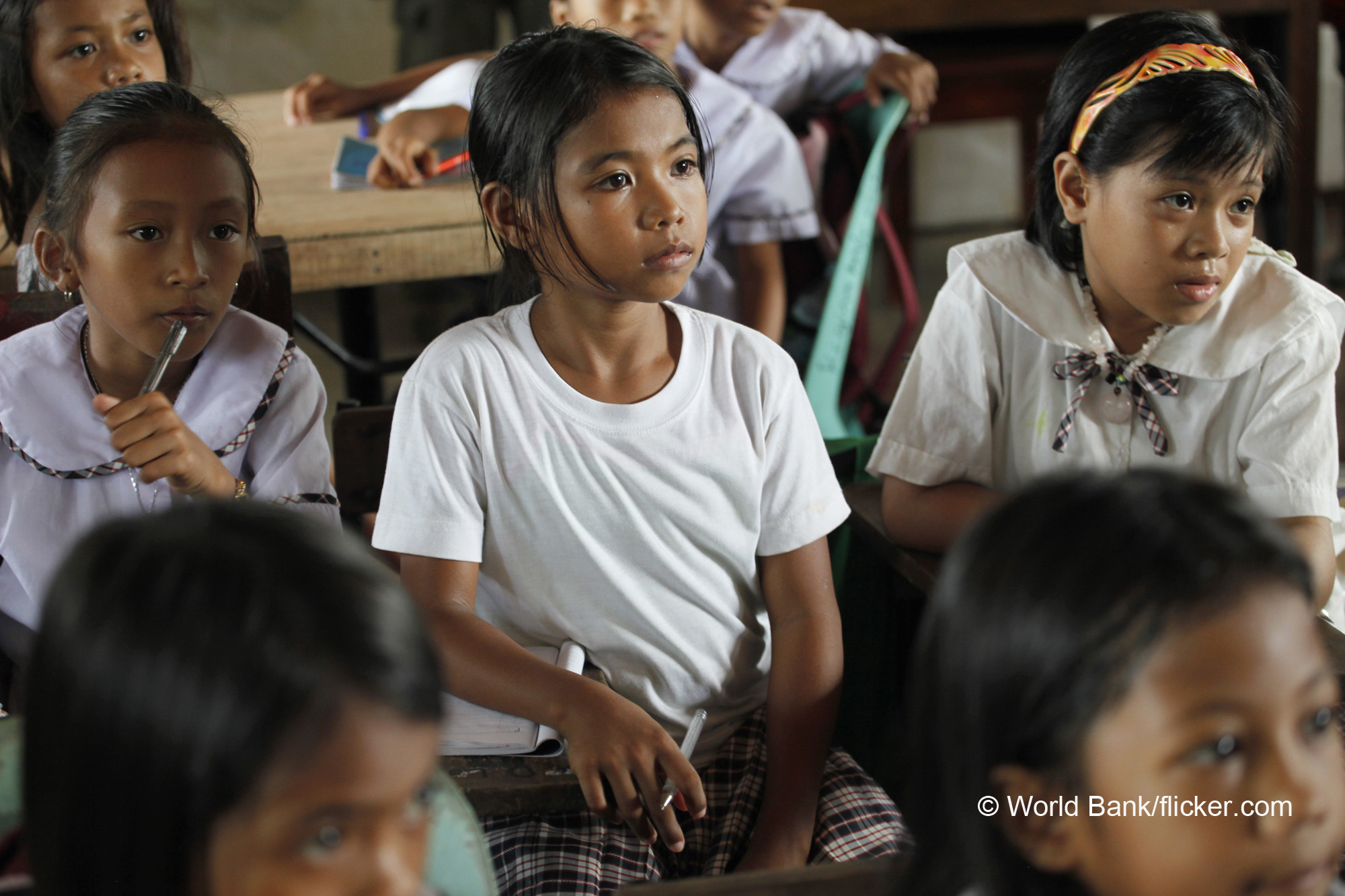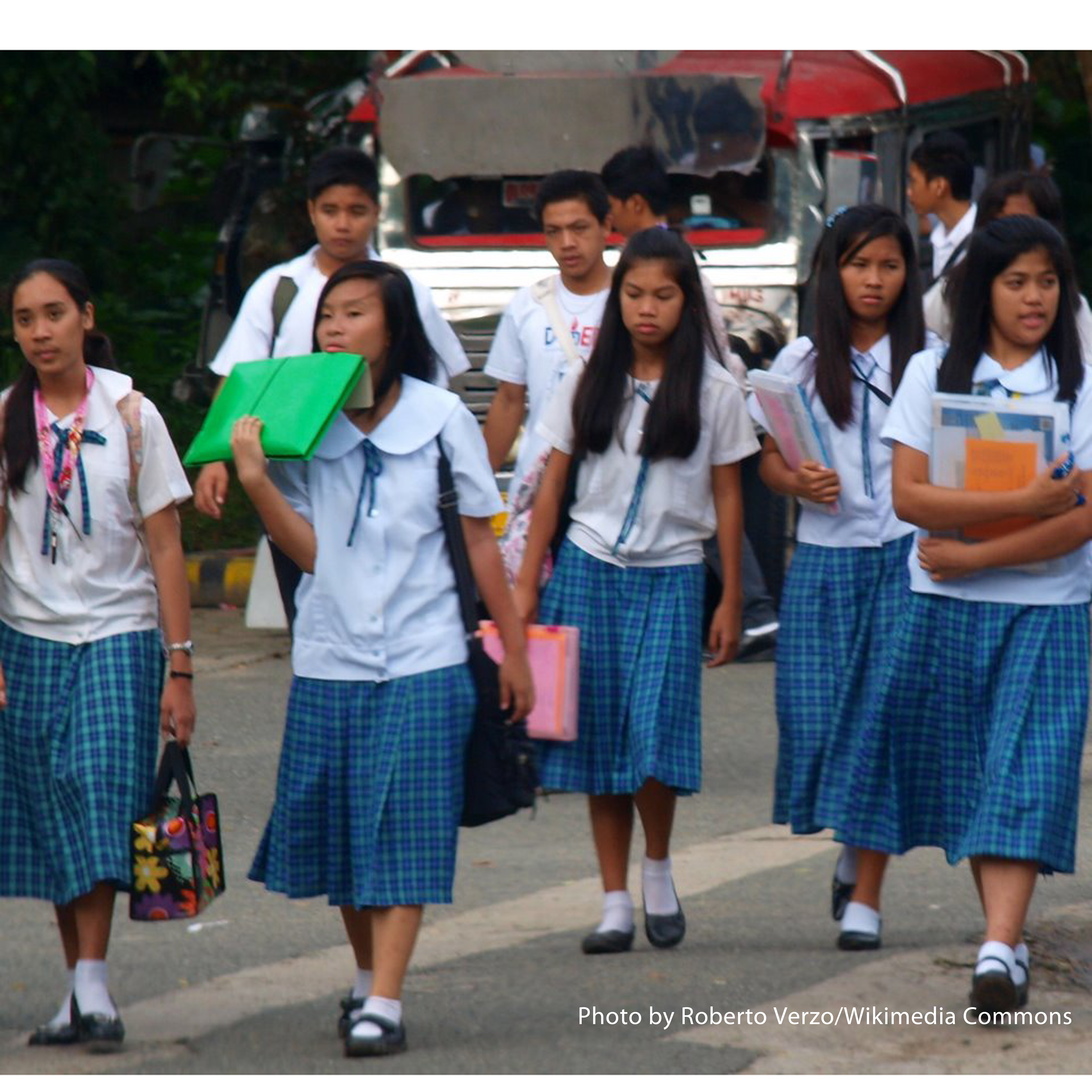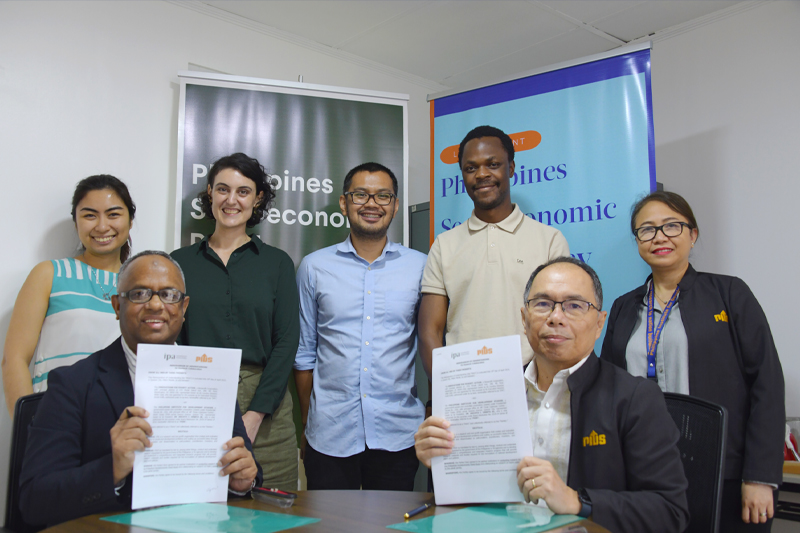This paper argues that mainstreaming small and medium enterprises (SMEs) and social enterprises (SEs) into various international treaties will require the assumption of positive externalities, which markets cannot fully evaluate. To show this, the possible influence that SEs may have on SME development and, eventually, on employment will be discussed. SEs are small- and medium-sized commercial businesses providing valuable social service to customers and sustainable jobs and training for up to about 200 people. Their goal is to provide public goods to the communities, in the form of increased productivity and employment. What separates SEs from SMEs is that it addresses the social issues at the forefront. Through this paper, the importance of providing such public goods to SME development will be highlighted. This study shall provide inputs to the analytical framework for the Philippines' engagement in APEC under the priority theme of "Mainstreaming Small and Medium Enterprises and Employment Creation" and shall make concrete recommendations on how employment can be created through the formation of social enterprises or socially-inclusive companies.

